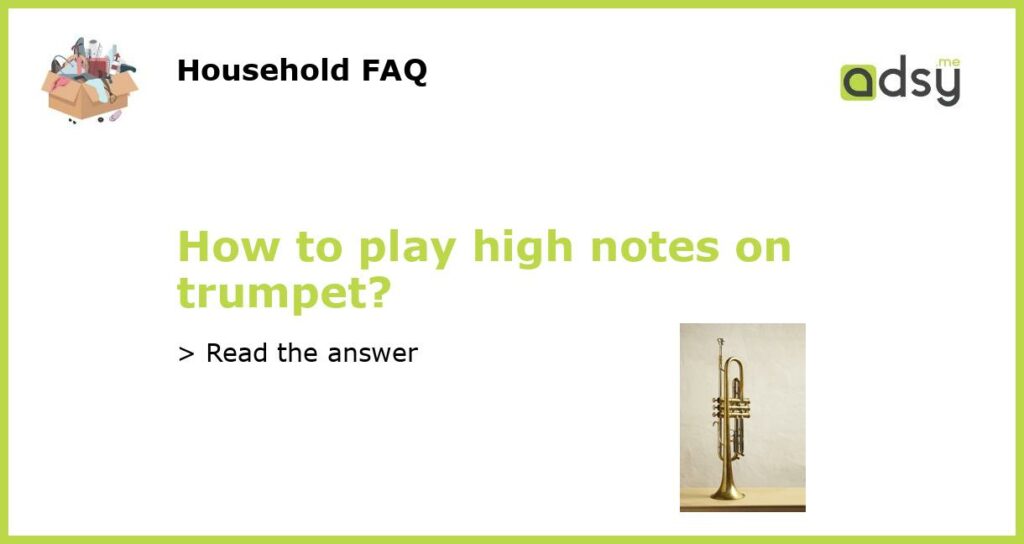Before we dive into how to play high notes on a trumpet, first it is important to understand the trumpet basics. A trumpet is a brass instrument that produces sound when the musician vibrates their lips while blowing air into the trumpet mouthpiece. The length of tubing and valves allow the musician to change the pitch of the sound produced. It is important to have a properly fitted mouthpiece, hold the trumpet correctly, and have proper posture to produce a clear sound.
Increase Your Range Gradually
If you want to learn how to play high notes on a trumpet, the key is to increase your range gradually. In other words, start slowly and increase the amount of practice gradually. Work on playing a single note cleanly and clearly. Avoid jumping straight to high notes. Start by playing notes within your comfortable range and using proper technique. Then, start going up the scale, gradually going higher over time. This will prevent strain on your lips and ensure you do not risk damaging them.
Importance of Lip Strength and Endurance
In order to play high notes on a trumpet, both lip strength and endurance are important. You need to build up the strength of your lips by practicing regularly with proper technique. Playing the trumpet requires a lot of lip control, so endurance is also key. Practicing for a few minutes each day will help build up lip strength and endurance over time. Try not to overdo it, however, as this can result in strain or damage.
Proper Breathing Techniques
Playing the trumpet is not just about lip strength and technique. Proper breathing techniques are also important. Take deep breaths and exhale slowly, controlling the air as it flows through the trumpet. This helps to create a clean and clear note, without excess vibrations or airiness. Proper breathing also sets the foundation for being able to play high notes on the trumpet.
Practice, Practice, Practice
Finally, the key to playing high notes on a trumpet is practice. Regular practice will help build up lip strength and endurance, improve breathing techniques, and develop muscle memory. Practice playing scales, arpeggios, and songs with high notes. Take breaks when necessary and avoid over-practicing to prevent strain or damage. With time and practice, you will be able to master playing high notes on a trumpet.






